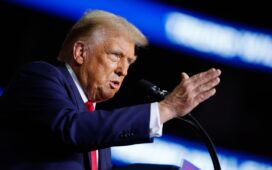The $1 trillion infrastructure bill, while less than a third of the $3.5 trillion reconciliation bill, neglects new post-pandemic patterns in work, driving, and land use. America deserves better.
Yes, America needs funds for building and repairing roads and bridges. This reflects Americans’ post-pandemic desire to drive in their own cars, to be safe from Covid-19, the Delta variant, and all other variants. But the amount allocated to roads and bridges is $110 billion—only about 10 percent of the bill.
Some provisions in the package prop up forms of transportation whose use has declined during the pandemic and may be slow to return. Other provisions have little to do with transportation, such as salmon recovery, the electric grid, and broadband.
Public transit would receive another $39 billion, even though it already received $69 billion in previous Covid-relief bills—$15 billion more than what it cost to run all 2,200 transit agencies in 2019. But if people continue to work some days at home, as they seen to prefer, the transit model of transporting millions of people daily in buses and trains will lose even more money than it did pre-pandemic.
The bill shores up an expensive transit system that could operate more efficiently, delivering point to point transportation at a lower cost. Rather than buses circulating in nonpeak (or even peak) hours with few passengers, app-based platforms could provide van pools through companies such as Via, Uber
UBER
Broadband is allocated another $65 billion. But in December, 2020, the Federal Communications Commission did a reverse auction to get companies to provide broadband to places that didn’t have it. Companies said they could provide the service for $9 billion.
At the time, FCC Chairman Ajit Pai said, “I’m thrilled with the incredible success of this auction, which brings welcome news to millions of unconnected rural Americans who for too long have been on the wrong side of the digital divide. They now stand to gain access to high-speed, high-quality broadband service.”
In addition to the FCC’s outlays, the private sector is already investing tens of billions in broadband every year. There is no need for an additional $65 billion.
Billions of dollars are allocated to encourage electrification of the transportation fleet, even though Americans have shown little desire to buy more-costly all-electric vehicles. In 2020 about two-thirds of those who purchased electric vehicles purchased a Tesla
TSLA
Global environmental benefits of vehicle electrification are to be determined. Yes, electric vehicles will lead to fewer emissions in urban areas. But emissions from power plants in rural areas will increase. So too will emissions from power plants in China that manufacture most of the world’s car batteries. And there remains the question of the environmental harm from manufacturing batteries, mining their ingredients, and finding a safe way to dispose of batteries when depleted.
More surprising is what’s not in the bill.
Congress in three separate bills in 2017 and 2018 has asked the Transportation Department to back up GPS, “subject to appropriations,” because it is vital for all economic sectors. It is used by your car navigation system, ambulances, and fire trucks to reach people, for agriculture, for construction, for the electrical grid. GPS is open to spoofing, electromagnetic storms, and military interference.
This is the time for Congress to appropriate the funds to back up GPS. But there is nothing for GPS complements or backup in the bill. Congress should allocate $1 billion to the Transportation Department for this purpose.
There is nothing in the bill for space, the new transportation frontier. I could not find any mention of NASA in the bill’s thousands of pages.
Much of the bill could have been written in the mid 20th century. But we are now well into the 21st century. How about some new ideas?
Private companies are investing in infrastructure, with billions of dollars raised privately in North America for infrastructure funds that invest all over the world. Investors have money for worthwhile projects. Pension funds are investing through these funds and also with their own assets. For example, CalPERS has a 10 percent stake in the Indiana Toll Road Concession Company.
U.S. investment would be more attractive if burdensome regulations could be streamlined so projects are approved faster. Limitations on tolling federal roads and bridges could be relaxed, so that private companies can invest in repair and new construction.
States could be given more flexibility on how they spend highway trust funds. States’ share of the highway trust funds, paid for by their residents, are returned with detailed instructions on how to spend these funds, including shares allocated to mass transit even in lightly-populated states that cannot use mass transit. States should be trusted to spend the money as they see fit.
The United States could raise the cap on tax-exempt surface transportation private activity bonds from $15 billion (practically all allocated) to $30 billion to encourage more private investment.
Constituents are likely telling their representatives, while they are home on recess, that the government is spending too much. With the U.S. economy growing at 6 percent and the inflation rate not far behind, now is not the time for trillions more in spending.








